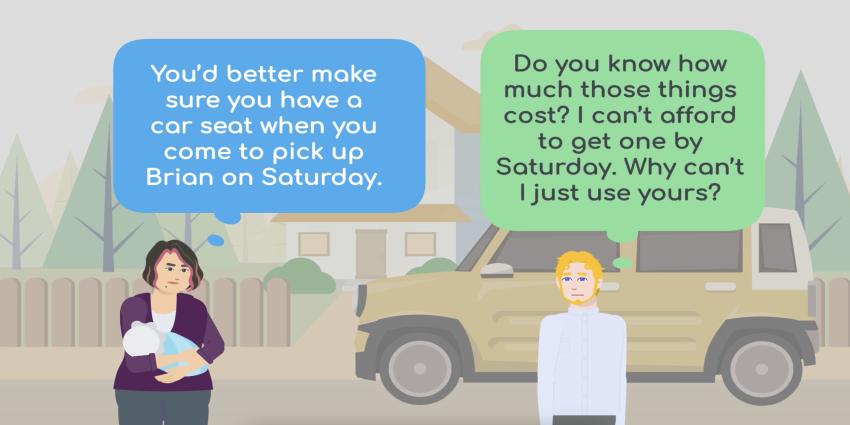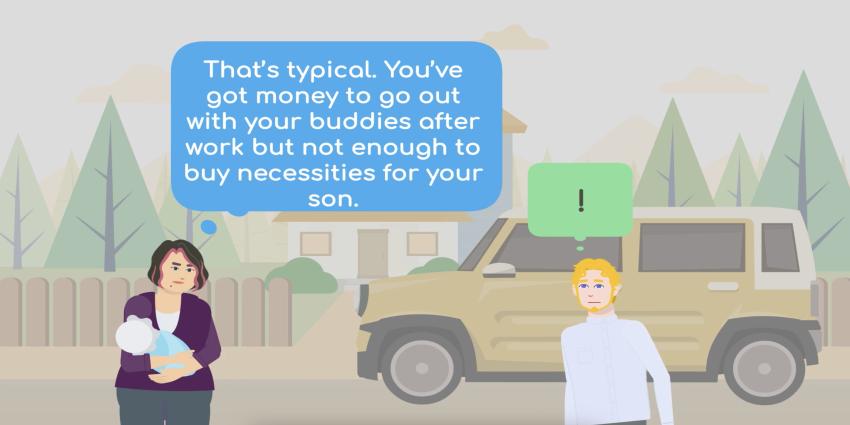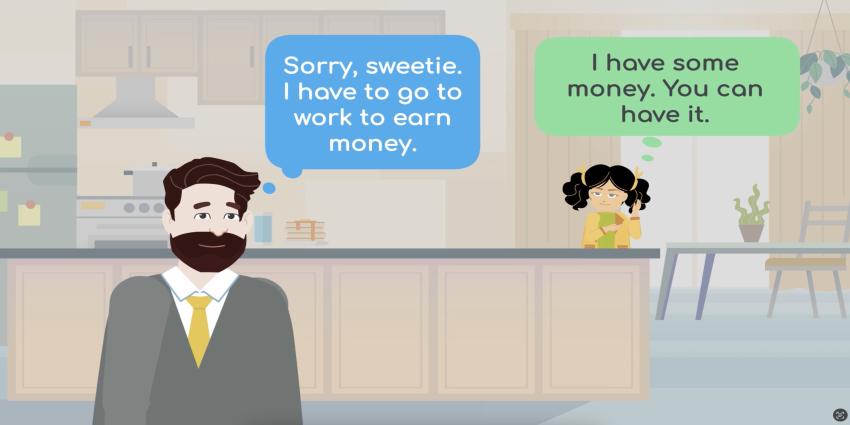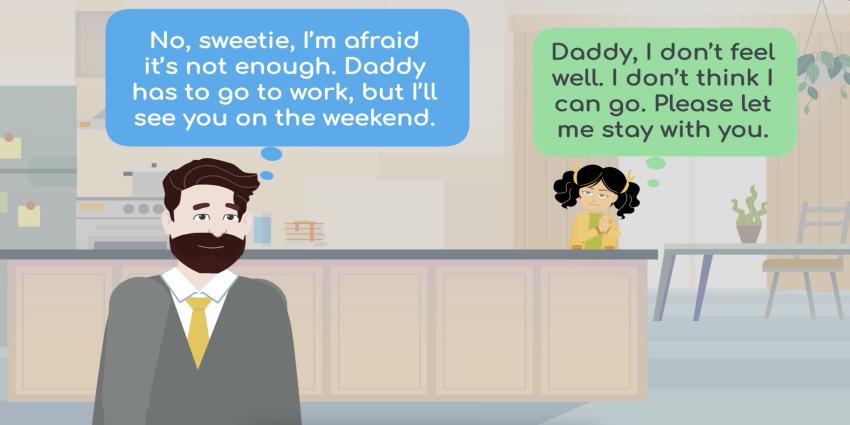Key Takeaway

Help your kids cope with money challenges after a separation by having age appropriate conversation about any budget changes. Reassure them that their care and well being is the main focus.

Babies from birth to 18 months are able to detect tension between their parents, but they cannot understand the reasoning behind the conflict. If tension continues, babies may appear to be nervous, especially around new people.
- Don’t fight in front of your baby. Reduce the baby’s startle reflex caused by exposure to loud voices and expressions of anger.
Kids from 18 months to 5 years realize that they are separate entities from their parents. Often separation involves changes in residence, preschool or childcare providers. There may be changes in routines because of available finances, and yet kids thrive with predictability and a stable environment.
Changes in the environment can be very difficult for kids at this age. They may react by insisting their immediate needs be met, even if there is tension at home. They may persistently seek a parent’s attention at a time when the parent may no longer have the same amount of time to give because of new responsibilities, emotions, or stress.
At this age a kid’s world is centered on itself, but they are aware of tension in the environment. A kid will react to emotions, and perceived threats to their security, for example, a parent who is upset and crying; a parent who is yelling; a parent leaving angry without the normal goodbye routines – with physical regression, for example, bedwetting – and emotional regression, for example, becoming more “clingy”, unable to sleep in own bed, having nightmares.
- Develop and keep to a routine.
- Reduce the number of changes in your kid’s world.
- Limit the number of transitions.
- Be mindful of how your behaviour, as well as your words, can have an impact.
- Don’t fight in front of your kids.
- Look to friends and family to spend some time with your kid.
- Read your kids' age appropriate books about divorce and separation to help them understand. Ask your local librarian for help finding books.
- Encourage your kids to talk about their feelings and worries.
Kids from 6 – 11 years are developing strong friendships. They understand loss when separation occurs. They are also able to recognize the changes resulting from your separation. Kids may have to cope with changes to residence, school, and childcare providers, which may affect their ability to continue activities or relationships with friends.
They may have to cope with changes to routine because there isn’t the same amount of money, for example, you may not be able to register your kid in the next swimming lesson, or your kids may not go to the summer camp they were accustomed to going to.
Even relatively small financial worries can build up to a breaking point in a kid’s mind, producing erratic outbursts, tears and periods of tiredness. There may be less money for toys or food at home, leading to a kid hoarding toys or food.
When kids witness their parent’s fear, anger or distress over lack of money, they may react with physical and/or emotional regression. They may hear the word “no” more often to do with money matters – toys, treats, special events – and react with attention-getting behaviour and self-centered behaviour.
They may react to competition between their parents over money by playing one parent against the other for bigger “rewards.” They may experience feelings of abandonment after overhearing negative comments about the other parent’s lack of financial support.
- Remove all conflict from your child’s presence. Don’t fight in front of, or within earshot, of your kid.
- Don’t show your anger about your child’s other parent’s spending habits.
- Don’t make negative comments about the other parent and money matters, either in person or over the phone.
- Explain changes in routine simply, without laying blame.
- Allow your kid time to adjust to new things.
- Develop a financial plan to deal with your kid’s needs.
- Establish a formal financial agreement with the other parent to address the kid’s expenses.
- Communicate with the other parent about on-going and unexpected expenses.
- Avoid getting into a competitive, overcompensating cycle with the other parent.
- Encourage your kid to talk to you about their fears or worries.
Teens 11 – 18 years are very aware of what is going on in their parents’ lives, including separation. Not only are they aware of what surrounds them, they are also very critical about the situation. Teens are more conscious about being different from their peers, and how these differences are accentuated.
Teens might be embarrassed by their parents’ separation and are resentful of how it affects their lives. Changes in finances hit teenagers very hard. Teens are easily caught in the middle. They can develop serious psychological problems as a result of a poisonous, emotional atmosphere.
- Talk to your teen about changes in your financial situation, but avoid blaming the other parent.
- Talk to your teen about budgeting and money management. Help your teen understand planning, so they can maximize their funds to select items that their budget allows.
- Don’t use teens as messengers about money.
- Share your teen’s financial concerns with the other parent and brainstorm solutions.
- If a teen doesn’t regularly live with a parent, that parent should try to introduce their teen to the parent’s own normal living conditions rather than take them to “special” places when they visit.
- Encourage teens to participate in money management – earning money, saving money, comparing earnings and expenses.

Remember
Create a supportive atmosphere and reassure them that their well being is the main focus. This can ease worries and strengthen their ability to handle this tough time.








